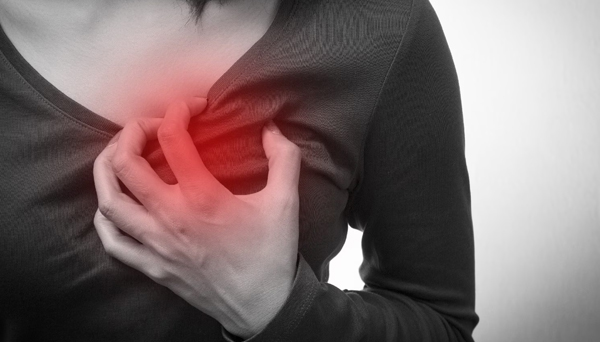
Heart attack symptoms are often similar across genders, but women may experience additional or less typical signs. Notably, women might have symptoms weeks before a heart attack occurs, including fatigue and sleep disturbances, and they are generally less likely to survive a heart attack than men. This may be due to differences in symptoms and unique risk factors, such as those associated with female-specific conditions like polycystic ovary syndrome (PCOS).
Key Symptoms of a Heart Attack in Women
Research indicates that women often show symptoms weeks before a heart attack. A 2003 study involving 515 women found that 80% had at least one symptom at least four weeks prior to their heart attack. Here are eight symptoms that may signal a heart attack in women:
Chest Pain:
While chest pain or discomfort is common in both men and women, women may also experience heart attacks without this symptom. For those who do experience chest discomfort, it can feel like tightness, pressure, squeezing, or aching.
Extreme Fatigue:
Women often report unusual fatigue in the weeks leading up to a heart attack. This fatigue can occur with minimal exertion and may persist just before the attack.
Weakness:
Feelings of weakness or shakiness, sometimes accompanied by anxiety, dizziness, fainting, or lightheadedness, can be acute symptoms of a heart attack.
Shortness of Breath:
This symptom may occur without physical exertion and could be associated with fatigue or chest pain. Women might also experience shortness of breath while lying down, which may improve when sitting upright.
Sweating:
Excessive sweating without a clear cause, along with feeling cold and clammy, can be indicative of a heart attack.
Upper Body Pain:
Pain in the neck, jaw, upper back, or arms, which can start in one area and spread, is a less specific but common sign of a heart attack in women.
Sleep Disturbances:
Almost half of the women in the 2003 study reported sleep issues in the weeks before their heart attack. These disturbances may include trouble falling asleep, waking frequently during the night, or feeling tired despite adequate sleep.
Stomach Problems:
Pain or pressure in the stomach, along with digestive issues like indigestion, nausea, or vomiting, may precede a heart attack in some women.
Recognizing these symptoms early can be crucial for effective treatment and improving outcomes. If you or someone you know experiences these signs, it is essential to seek medical attention promptly.